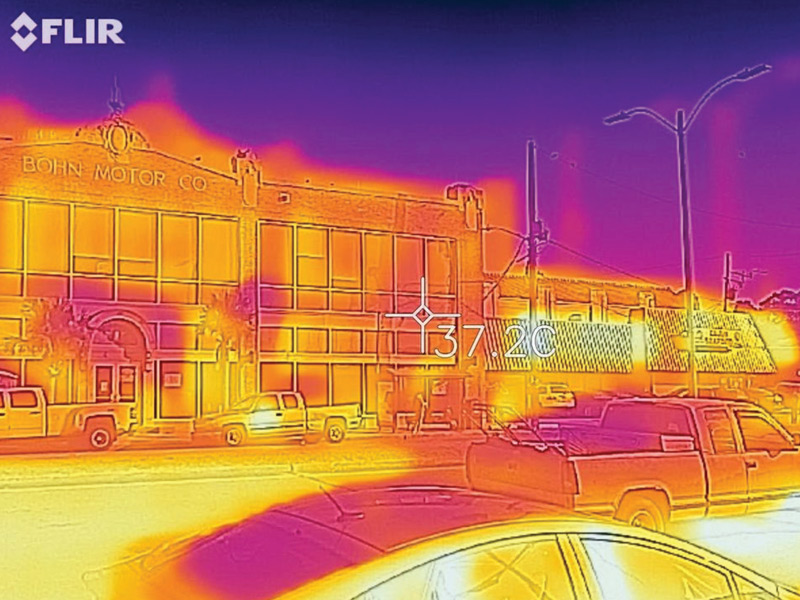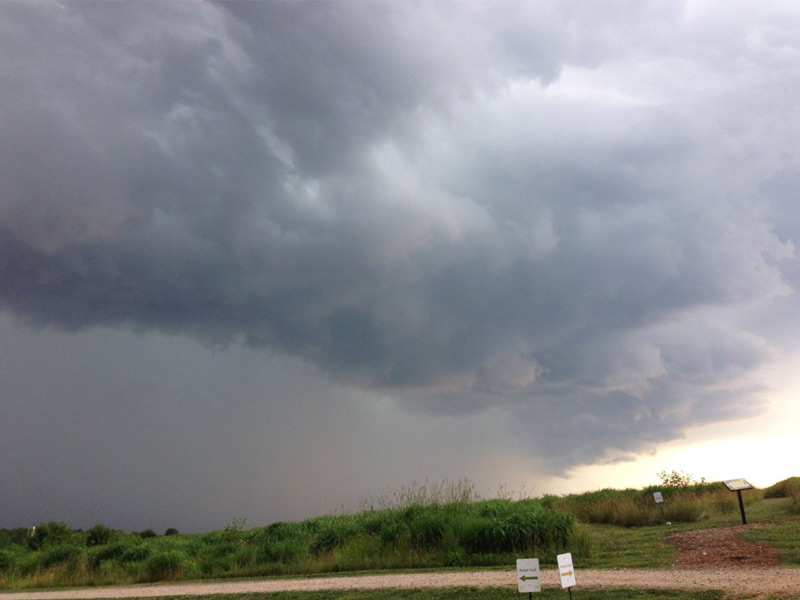Citizen Science Summer Opportunities
For immediate release ‐ July 07, 2021
Contact: Micah Beasley, 919.707.9970. Images available upon request
The Museum’s Citizen Science Unit connects scientists and those who are curious, concerned or motivated to make a difference in their corner of the world. Museum citizen science volunteers collect data to support scientific research by making observations and documenting changes in nature. As we face global challenges, scientists need more eyes and ears than ever before; that’s why citizen science is so important!
This summer, the Citizen Science Unit has two opportunities for you to get involved and help support the natural world.
HeatWatch
From ozone warnings and heat advisories to flooding and thunderstorms, North Carolina’s weather can be extreme.
 An example of a heat map overlay for the HeatWatch citizen science project.
An example of a heat map overlay for the HeatWatch citizen science project.
This summer, we have partnered with other museums and community and national organizations for two projects focused on extreme weather events in the Raleigh/Durham area and you can get involved!
The HeatWatch campaign will take place on a weather-dependent very hot day this summer, likely mid-to-late July, and will map temperatures across Raleigh and Durham. HeatWatch will create an urban heat map of the Raleigh/Durham area that will highlight neighborhoods experiencing the most extreme temperatures by sending volunteers with sensors along predetermined routes. Because these areas are most often the result of discriminatory urban planning practices and are populated by our neighbors most vulnerable to the effects of extreme urban heat, the Museum, the Museum of Life and Sciences, the NC State Climate Office, City of Raleigh, Durham County, the National Weather Service, Activate Good and others hope to alleviate the impacts of urban heat island effects on those most heavily impacted by directing remediation efforts to areas that most need it.
Learn more about HeatWatch and sign up to volunteer.
The Citizen Science, Civics, and Resilient Communities Project
The Museum’s Citizen Science Unit is also a part of the Citizen Science, Civics, and Resilient Communities (CSCRC) Project as one of 20 recipients of funding to engage local volunteers in monitoring extreme weather events through citizen science projects.
 A thunderstorm forms at the Museum’s Prairie Ridge location.
A thunderstorm forms at the Museum’s Prairie Ridge location.
The Museum will kick off the CSCRC citizen science project with a one-hour long training session, developed in partnership with the NC State Climate Office.
The training will focus on the hazards that extreme precipitation events bring to our state, how they impact certain areas and people unevenly, and how to measure precipitation through the Community Collaborative Rain, Hail and Snow Network (CoCoRaHS) citizen science project that helps generate data for remediation efforts.
Participants will also attend a national forum hosted by the project lead, the Museum of Science in Boston, to learn more about the importance of this weather hazard and ways we can build resilient communities. Anyone who attends one of the trainings, attends the forum and collects data for the CoCoRaHS condition monitoring following the training will receive a free CoCoRaHS precision rain gauge!
Register to participate in the CSCRC project by attending one of the scheduled online trainings here:
Saturday, July 10 CSCRC training, 10:00–11:00am
Monday, July 12 CSCRC training, 7:00–8:00am
By partnering with other organizations to bring these projects to North Carolina this summer, the Citizen Science Unit hopes to help engage Museum visitors in collecting data that can directly impact the people most heavily impacted by extreme weather hazards locally. You can help by spreading the word or signing up to participate yourself.
For more information about our upcoming activities, conservation news and ground-breaking research, follow @NaturalSciences on Instagram, Twitter and Facebook. Join the conversation with #visitNCMNS.

